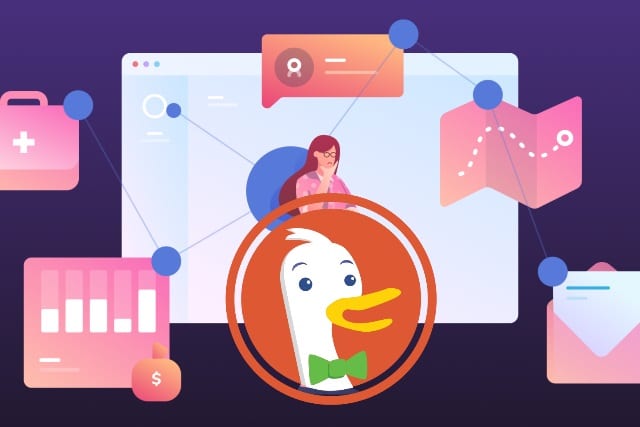
DuckDuckGo reminds ignorant users that many websites ignore browsers' Do Not Track privacy requests
In an increasingly-connected world where data is collected and shared, privacy has become ever-more important to people. If you are of that mind, you may have enabled the Do Not Track (DNT) setting in your web browser in the hope that it will stop the websites you visit from tracking your online activities. Bad news: it probably makes no difference whatsoever.
This might be something you knew already, but research by privacy-focused search engine DuckDuckGo -- which famously does respect DNT requests -- found than more than three-quarters of people were not aware of that that many sites ignore DNT settings.
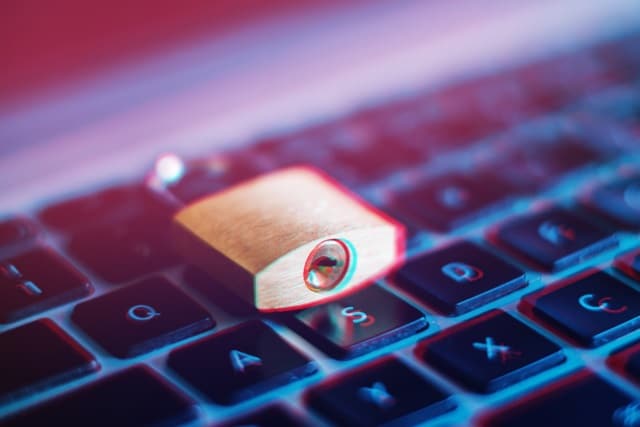
Cisco joins Apple in calling for a US version of GDPR data protection and privacy laws
The roll out of GDPR (General Data Protection Regulation) has changed the face of privacy and data protection for millions of people across Europe. The regulation not only grants people access to the personal data companies hold about them, but also controls how this data can be used and transferred.
Apple's Tim Cook has already voiced his support for GDPR and said that the rest of the world should implement similar regulation. Now he has been joined by Cisco in calling for data laws to be embraced by the US as they have been in Europe.
Apple apologizes for privacy-invading FaceTime bug, promises delayed software update
Apple has issued an apology for the recently-discovered bug that made it possible to eavesdrop on people via FaceTime.
The company had promised that a software update would be delivered later this week, but the interim solution was to simply disable the group FaceTime feature server-side. Apple now says that the problem has been fully fixed, but a software update that re-enables the group function will not be issued until next week.

New context sensitive tool helps businesses comply with data protection
The introduction of new regulatory and privacy laws around the world is forcing companies to become more aware of the personal customer info they are holding, but it can be hard to identify sensitive information.
AI-based compliance platform Cognigo is launching a new data protection capability that can differentiate between sensitive and non-sensitive data based on language context.
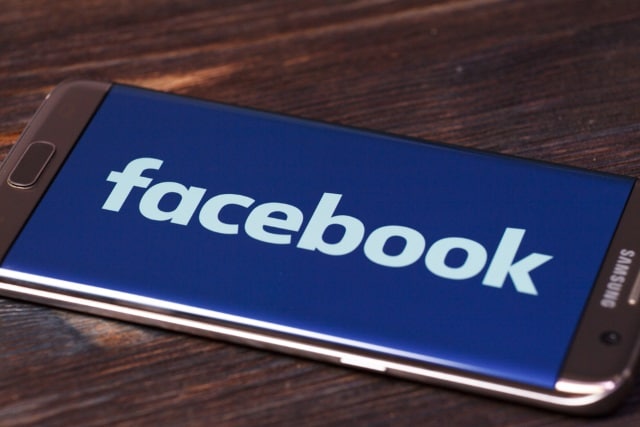
Facebook has been paying people to install a VPN that harvests data about them
An investigation has revealed that Facebook has been paying people aged between 13 and 35 to install a data harvesting VPN tool. The "Facebook Research" VPN was offered to iOS and Android users who were paid up to $20 per month -- plus referral commissions -- to provide the social network with near-unfettered access to phone, app and web usage data (a Root Certificate is installed to give a terrifying level of access).
As news of the activity came to light, Facebook has announced that the program (sometimes referred to as Project Atlas) is being terminated on iOS, but it seems that it will be continuing on Android. If this sounds slightly familiar, you just need to think back a few months to when Facebook's Onavo Protect VPN was kicked out of the App Store for violating Apple's data collection rules.
How to disable FaceTime and protect your privacy
By now you have probably heard about the bug that's been discovered in Apple's FaceTime. In short it is an exploit that lets you connect a call you have placed rather than waiting for the recipient to pick up -- so you can then listen to audio and watch video.
Apple is working on a fix, and it you want to be sure that you don't fall victim to eavesdropping, you should think about disabling FaceTime on your iOS device. Here's how to do just that.
Massive FaceTime privacy bug lets people eavesdrop on audio and video calls before they've been answered -- and Apple doesn't have a fix yet
Apple is scrambling to fix a serious bug that has been discovered in its FaceTime messaging services. The bug makes it possible to spy on the people being called, even if the call is not picked up.
This is a serious privacy issue, as it gives someone the ability to secretly eavesdrop on someone -- or even watch them -- without their knowledge. At the moment, Apple does not have a fix but the company says it is working on the problem and will address it by the end of the week. In the meantime, you may want to consider disabling FaceTime on your iOS device.
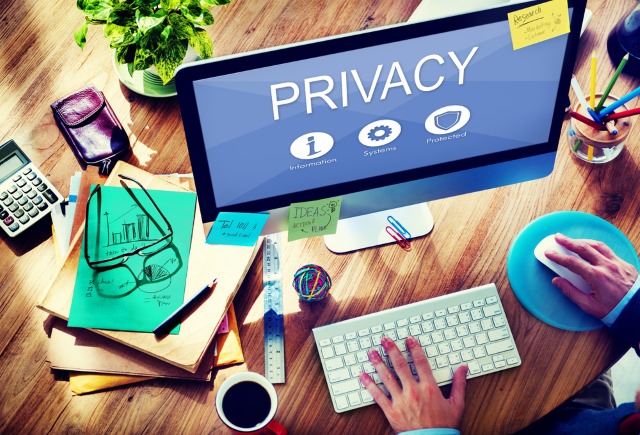
Ten top tips to keep your information secure on Data Privacy Day
One of the biggest threats as you browse the internet isn’t hackers trying to get into your computer (a common misconception) or the potential of accidentally installing malicious software. Your security suite should take care of both these issues.
No, the single biggest issue is your personal data and the information you leave all over the internet when you share your content, chat with other people and the login information we use to access our online data. What can we do to safeguard our personal data and keep it away from people seeking to exploit us? Here are our top tips.
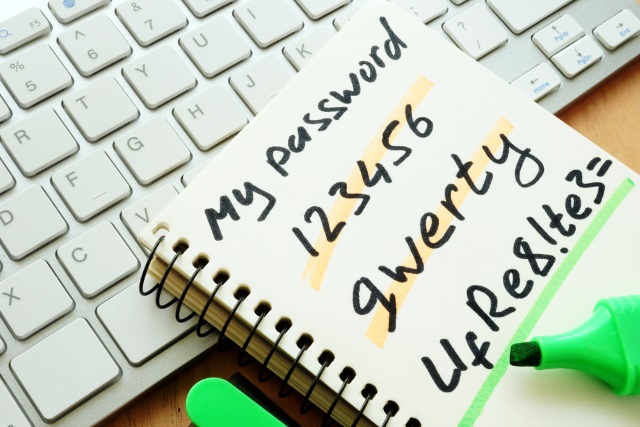
69 percent of employees share passwords with colleagues
According to a new study, 69 percent of respondents admit to sharing passwords with others in the workplace, and 51 percent reuse an average of five passwords across their business and personal accounts.
The study by authentication key vendor Yubico and Ponemon, released to coincide with Data Protection Day, also finds two-factor authentication isn't widely used, 55 percent don't use it at work and 67 percent don't use it for their personal accounts.
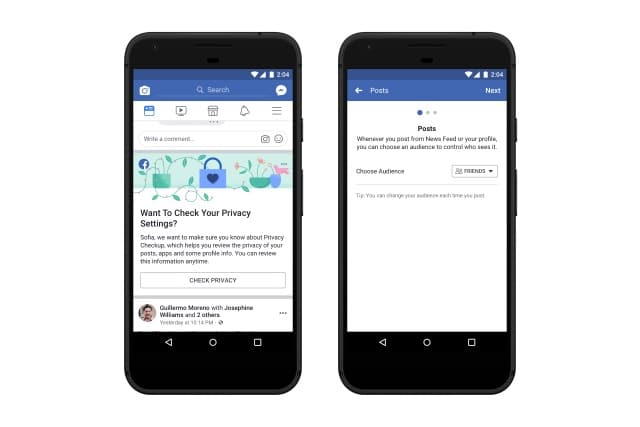
Try not to laugh -- for Data Privacy Day, Facebook wants you to take a Privacy Checkup
Facebook is not a platform that's synonymous with privacy -- far from it. In addition to the things users purposefully share with the social network and the people they are connected to on it, there have been a seemingly endless string of scandals about unauthorized third parties being granted access to private data, data being shared between apps, and so on ad nauseum.
With today being Data Privacy Day, Facebook is trying -- apparently without a faintest hint of irony -- to jump on the bandwagon. Starting today, the company is launching a new Privacy and Data Use Business Hub, as well as inviting users to take a Privacy Checkup.

Huge Collection #1 database leak exposes 773 million email addresses and 21 million passwords
A massive database leak -- dubbed Collection #1 -- has made its way to hacking forums, exposing millions of email addresses and passwords. The news was first shared by Troy Hunt -- the man behind Have I Been Pwned? -- who explains that the leak comprises, "many different individual data breaches from literally thousands of different sources".
Hunt explains that there are "1,160,253,228 unique combinations of email addresses and passwords", so there are a very large number of people that may have been affected by the leak.

Privacy-centric DuckDuckGo shuns Google and turns to Apple Maps for location-based searches
With the emphasis it places on privacy, it should come as little surprise that search engine DuckDuckGo is less than keen on Google. The latest demonstration of this is the company's decision to eschew Google Maps in favor of Apple's MapKit JS framework to power its map-related searches.
DuckDuckGo says that this brings users a "valuable combination of mapping and privacy", both on the desktop and on mobile.
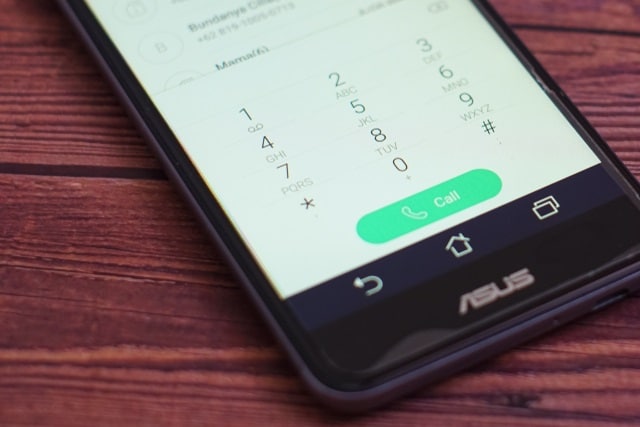
Google is kicking apps that ask for SMS or Call Log permissions out of the Play Store
Google has reminded developers that their apps will be removed from the Play Store if they request SMS or Call Log permissions. The policy change was announced last year, and over the next few weeks the app removal process begins.
While these particular permissions have been used to give Android users a choice of dialers and messaging apps, Google says there have also been instances of abuse. The company is introducing far stricter restrictions in the name of privacy and protecting user data.

DuckDuckGo denies using fingerprinting to track its users
Responding to a forum post that accused it of "fingerprinting users", privacy-centric search engine DuckDuckGo says that fears are unfounded and that it is not tracking its users.
The allegation was made after the Firefox extension CanvasBlocker showed a warning to users. The suggestion of fingerprinting -- gathering as much information as possible about a user through their browser to create a unique identifier that can be used for tracking -- is clearly something that would seem to sit in opposition to what DuckDuckGo claims to stand for. The company CEO says the accusation is simply wrong.

Weather Channel app accused of opaquely selling users' location data
The Weather Channel app holds the accolade of being the most popular mobile weather app, but it is also facing accusations of misleading users into agreeing to allow the company to sell their location data to third parties.
A lawsuit filed in Los Angeles this week alleges that the operator of the IBM-owned app -- TWC Product and Technology LLC -- sold user data to at least a dozen companies and failed to make details of this clear to users. The lawsuit says that the data was used to delivered targeted advertising and also to analyze consumer behaviour.
